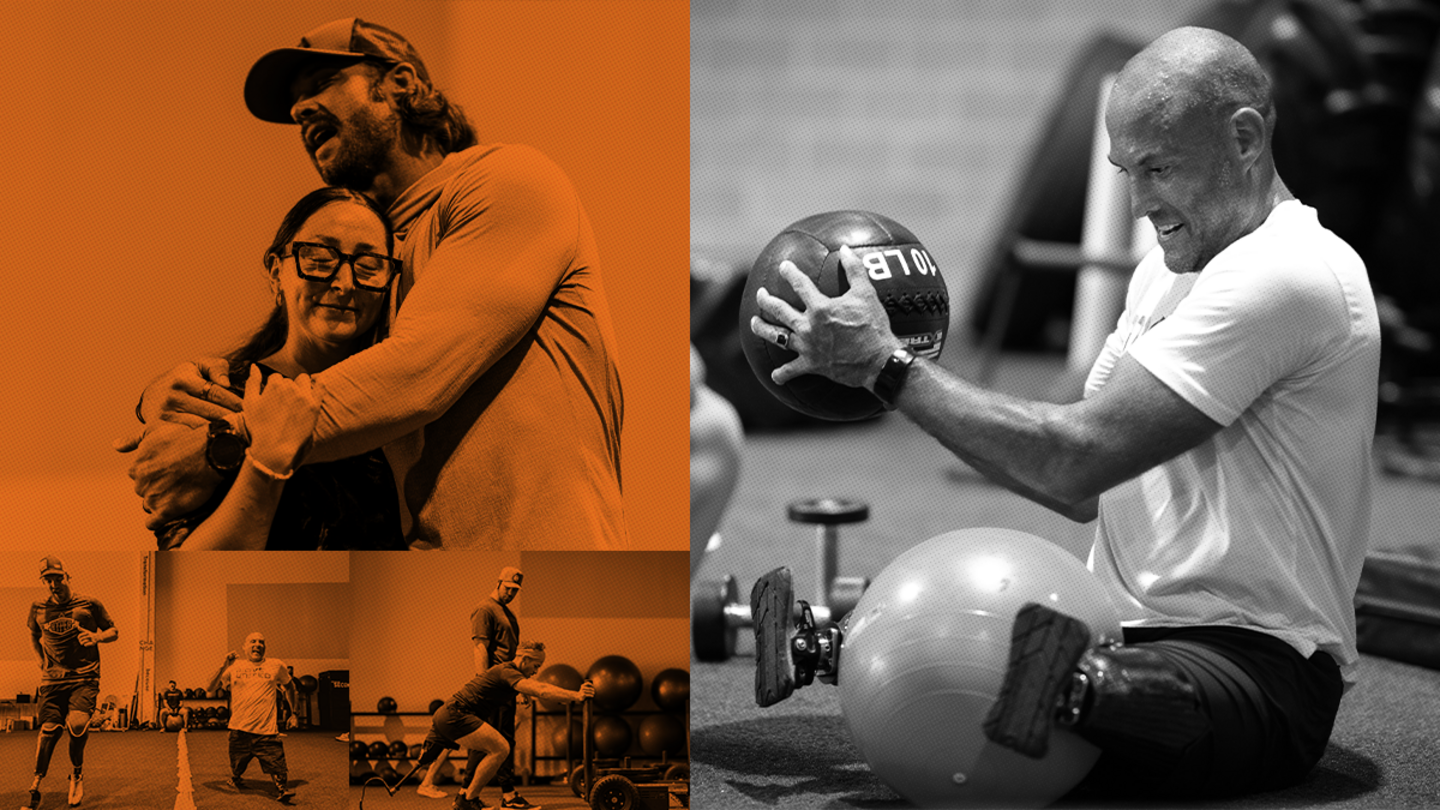Tyler Turner has a message for everyone watching the Summer Paralympics: “We all have barriers that are holding us back. But this is what happens when you break ‘em down.”
Turner would know.
He won Canada’s first gold medal in snowboarding during the Winter Paralympic Games in 2022. It was a remarkable victory — especially because fewer than five years earlier, he nearly died in a skydiving accident that ultimately claimed both his legs.
“I just messed up on my jump,” Turner said, “I hit the ground going extremely fast. I broke my back, shattered my pelvis, and went into a coma for over a week.”
His right foot had to be amputated below the knee. While he hoped his left leg would recover, the pain got worse over the next year, until he had to amputate that leg too.
Becoming a double amputee was devastating for Turner. Amid the pain, he sank into a deep depression. And while he started physical therapy and a recovery regimen, his heart wasn’t in it: “I was barely surviving. I thought my life was over, that I’d never do anything or be anyone.”
But then Turner got a call from someone he didn’t even know. On the other end of the line, David Vobora said he’d heard Turner’s story and knew he could be an incredible athlete. Vobora asked him to come from Canada to Texas to train at his gym, called the Adaptive Training Foundation (ATF).
ATF is truly unique. It helps people who’ve lost limbs or experienced trauma reach their full athletic potential, but the workouts aren’t the most important part.
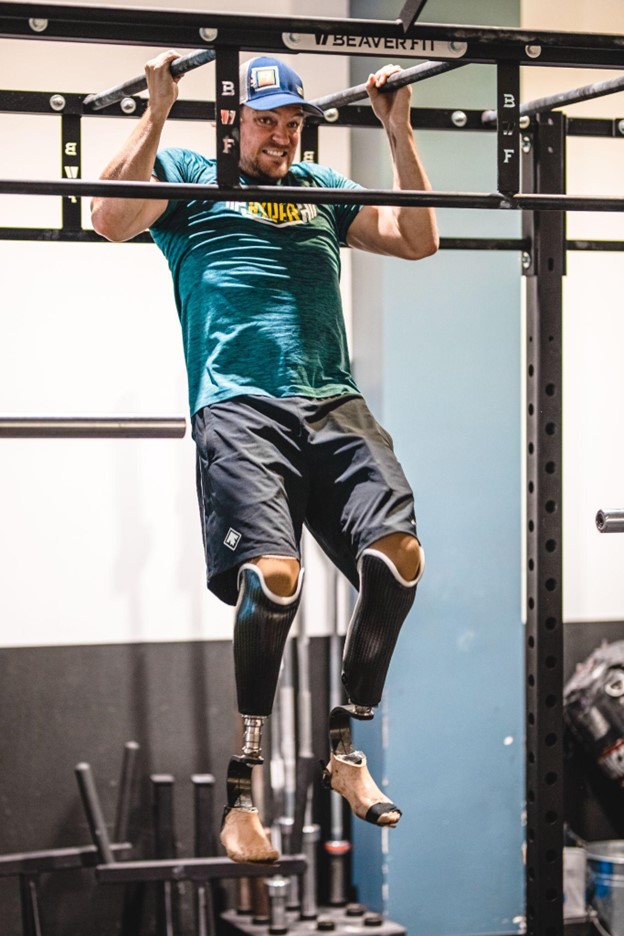
ATF helps athletes who’ve lost their self-belief find their true psychological strength, breaking the mental barriers that ultimately hold them back physically. The goal is to help athletes who are overlooked compete at the highest and most inspiring level.
Turner says that’s exactly what Vobora offered. He told Turner: “It’s time to get moving.”
So Turner got moving. He spent three months at Vobora’s gym, as part of its “ReDefine” program. Turner says it changed his life: “I came home completely transformed — not only physically but mentally, too. I was a whole new person with a whole new attitude.”
He still can’t believe how quickly things changed. Every recovery plan he’d tried to that point treated him like damaged goods, “they were afraid I’d fall so they told me not to push it.” But in Texas, “they told me to push it, to see what I’m truly capable of.”
Turns out, Turner needed the push. His experience in Texas led him to snowboarding, and it wasn’t long before he went to the Paralympics. He now hopes to medal again at the games in 2026.
Can he get another gold?
“The only reason I can,” Turner says, “is because of what I learned at the Adaptive Training Foundation” with Vobora.
‘Everybody can elevate’
Vobora has never lost a limb, but he knows what it means to be counted out.
He was the last pick in the NFL’s 2008 draft, earning the title of “Mr. Irrelevant.” He spent four years with the Rams and Seahawks before retiring. He moved to Dallas and founded a for-profit gym. Then, in 2014, he met a man who changed his life.
“Have you ever seen someone with no arms and no legs crush a workout? I have,” Vobora said. He’s talking about Staff Sgt. Travis Mills, who Vobora says is “one of only five living combat veteran quadruple amputees.”
They started working out together, which gave Vobora a passion for helping people with impairments like Mills. With that goal in mind, Vobora closed his first gym to start ATF, which has always been free of charge.
“We chose the name because adapting is what this is all about,” Vobora explains. “We help people who’ve lost their limbs adapt and evolve to be their best and highest selves.”
As a former professional football player, Vobora built ATF to offer “everything I had in the NFL experience.” They have training programs that last anywhere from nine days to 10 weeks, and “we feed, house, and train these guys with a top-tier, science- and performance-based system.”
But Vobora’s original background is psychology, not sports — and that’s what really sets ATF apart. “There are no victims here,” he says. Why? Because “if you treat people like they’re broken, they act broken. But losing an arm or a leg doesn’t break you. It just means you have to do things differently.”
That’s a big mental shift for everyone who comes to ATF.
After what they’ve been through, “they have a mental block about their own abilities,” according to Vobora. It’s usually reinforced by the people around them and standard recovery programs, as well as most gyms that cater to adaptive athletes. So ATF starts “by challenging their mindset about who they are and what they can do.”
The transformation is unbelievable. “Everyone comes here saying, ‘I can’t,’ but they leave knowing they can,” Vobora said. “We teach people power words, which are three words you can say to yourself when it gets hard. They always overcome.” Vobora knows this can work for anyone, no matter how injured they are, both physically and mentally: “Everybody can elevate.”
Sign up for the Strong & Safe Communities newsletter for stories, ideas, and advice from changemakers working with their neighbors to address the biggest problems we face.
A decade in, ATF has trained over 350 adaptive athletes, many of whom have pursued professional athletics and are pushing boundaries in a range of competitive sports. A lot of them come back every few years to gain even more of the confidence they need to succeed.
Vobora says he’s just getting started, and today, ATF is in the middle of a capital campaign to build a four-acre, 30,000-square-foot training compound outside Dallas. Vobora couldn’t be more excited: “This is a movement, not just a mission.”
‘I’m going to be a dual-sport Paralympian — surfing in summer, skiing in winter.’
When athletes come to ATF, they’re usually not big names — yet.
Take Kyle Stepp from Albuquerque, New Mexico. He’s a triathlete on track to compete in the 2028 Summer Paralympics in Los Angeles.
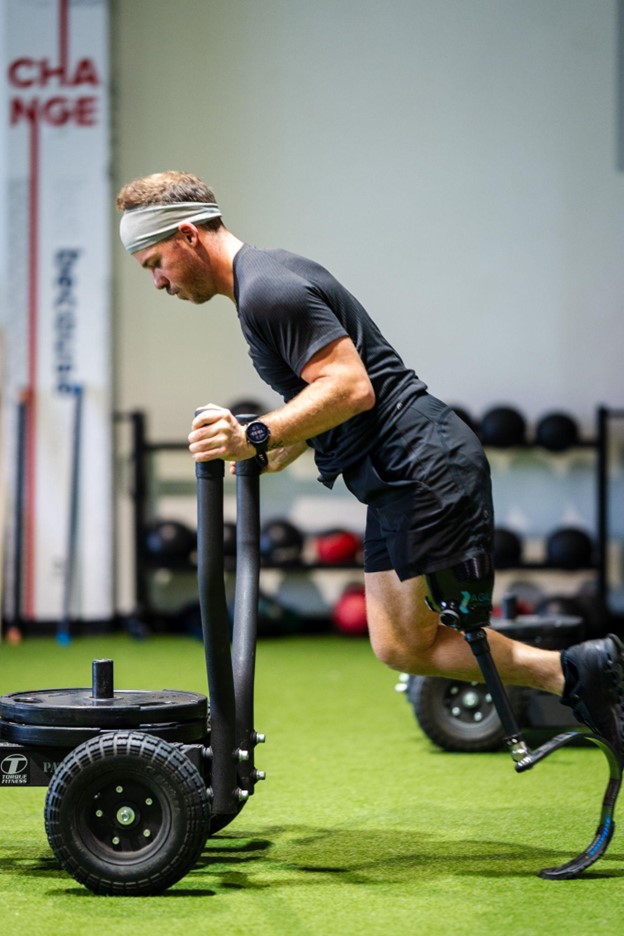
Stepp was injured as a high school freshman, which led doctors to discover that he had cancer. The treatment took such a toll on his body, that it required major surgery on his leg. He lived with pain through his college years, only for a biking accident to force the amputation of the leg in 2020. He knew he wanted to get back into sports, which led him to triathlons using prosthetic legs.
But it wasn’t until late 2023 that he found his true potential, because that’s when he found ATF.
“Beforehand, everyone treated me like I was fragile, like my dreams would never come true,” Stepp said. “Here, they tell you they hear your goal and want to help you reach it.”
But Stepp makes a crucial point: “They don’t do it for you. They help you do it yourself by finding the strength you never knew you had.”
That training came in handy during a recent World Triathlon race. Stepp experienced mechanical issues on the bike, and during the run, his socket broke mid-stride. But he wasn’t worried: “ATF trained me for the unexpected and how to push through extreme discomfort.”
Instead of giving up, Stepp pushed through the discomfort and did what he came to accomplish: finish the race and secure valuable international points. Less than a year after going to ATF, he’s ranked 12th in the world.
Matthew Brewer’s life has been transformed, too. His own cancer battle led him to a years-long struggle with substance abuse, and after passing out in a bathroom for 18 hours, he awoke to paramedics telling him they had to amputate both his legs to save his life.
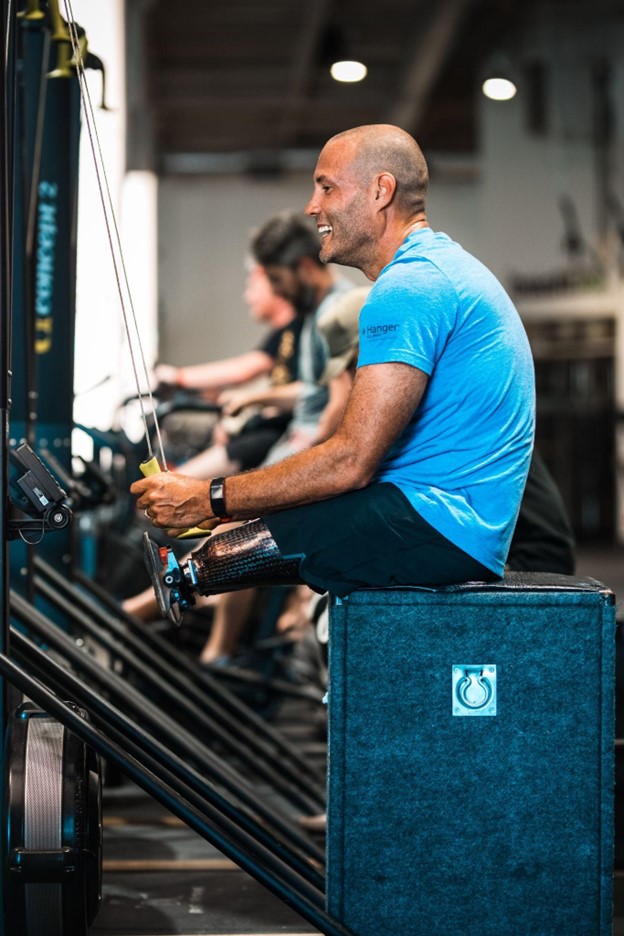
“For three years, I sat in a wheelchair, with no hope,” Brewer said. Thankfully, he got introduced to adaptive sports by another organization, which helped him get his life back on track. Brewer said he started with mono-skiing, “but I felt like I was missing out on something.”
That something was the mental strength to reach his peak.
In 2021, Brewer joined a 10-day ATF program — called “Hyper” — in Texas. He said, “I learned that my limitations aren’t in my body, they’re in my mind.”
By the end of the year, Brewer had qualified for the 2022 Winter Paralympic Games, and after competing in Beijing, he was named to the U.S. National Team.
“I attribute this to ATF,” he said. And with the training he got, he’s rising not only as a skier, but also as a surfer. Brewer said he has a new and even bigger goal: “I’m going to be a dual sport Paralympian — surfing in summer, skiing in winter.”
Whether it’s Brewer, Stepp, or Turner, the athletes who go through ATF say the community they find there is essential to turning trauma into triumph. Vobora agrees: “There’s a feeling in the gym that’s almost spiritual, like a church foyer after a wedding.”
Ultimately, that mutual support is key to the barrier-breaking and personal empowerment that ATF sparks in many athletes.
As Vobora puts it, “it fires me up to see what a community can accomplish, when we believe in each other.”
***
The Adaptive Training Foundation is supported by the Stand Together Foundation, which partners with the nation’s most transformative nonprofits to break the cycle of poverty.
Learn more about Stand Together's efforts to build strong and safe communities and explore ways you can partner with us.

At this ‘resort,’ children with intellectual disabilities are seen as gifts to be celebrated and loved.

Veterans experience loss when leaving service. Could this be key to understanding their mental health?

The Grammy-nominated artist is highlighting the stories we don’t get to hear every day.
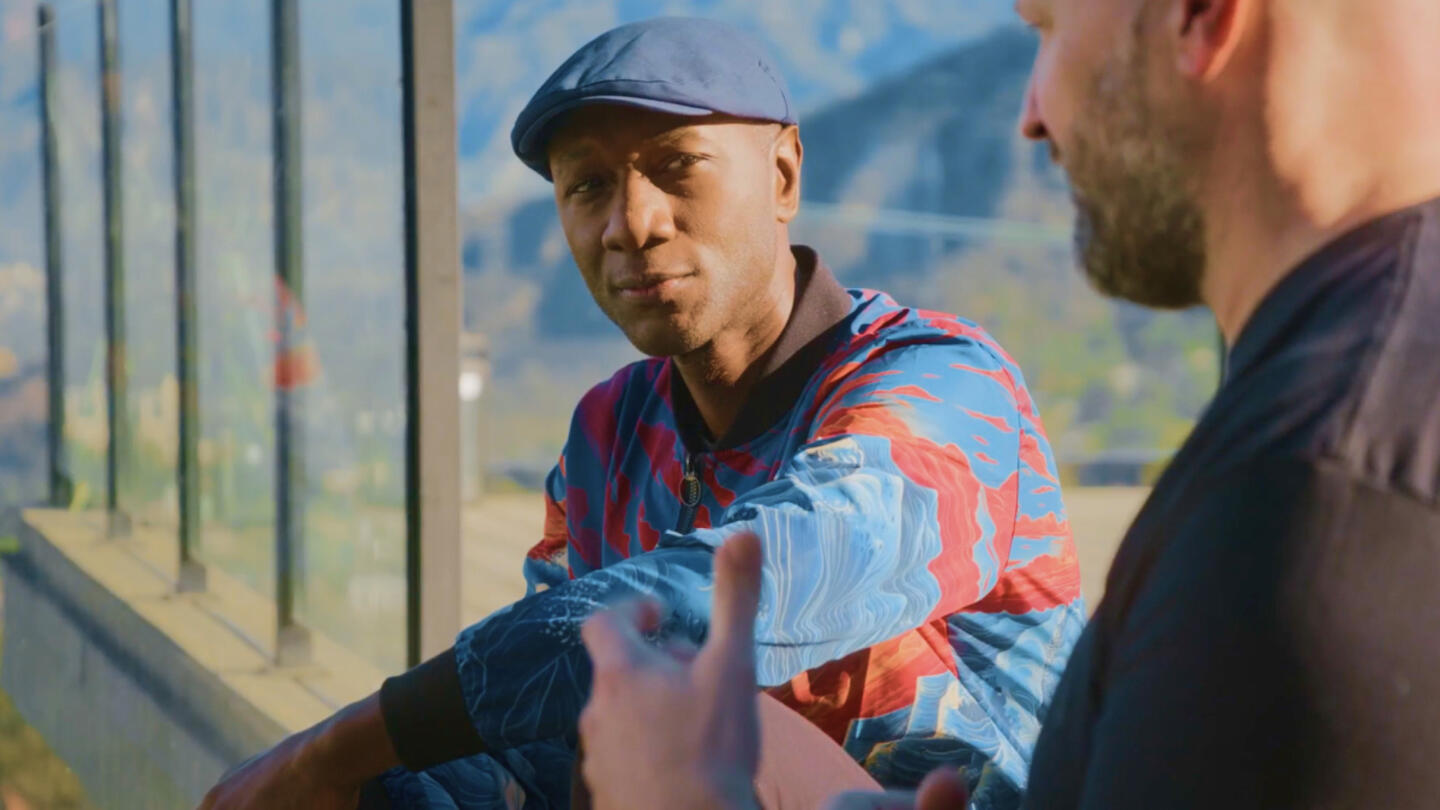
With his latest project, Blacc isn’t just amplifying stories — he’s stepping into them
